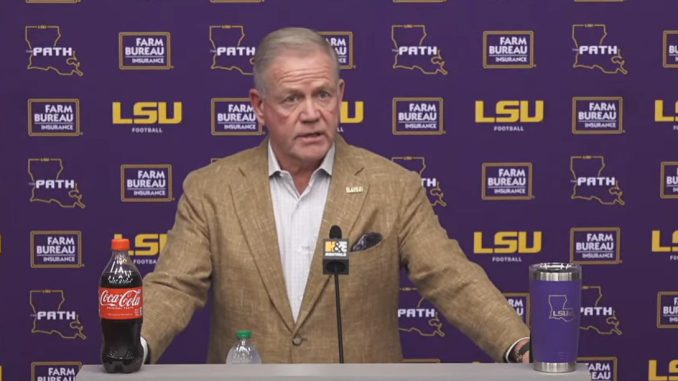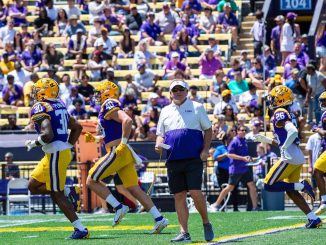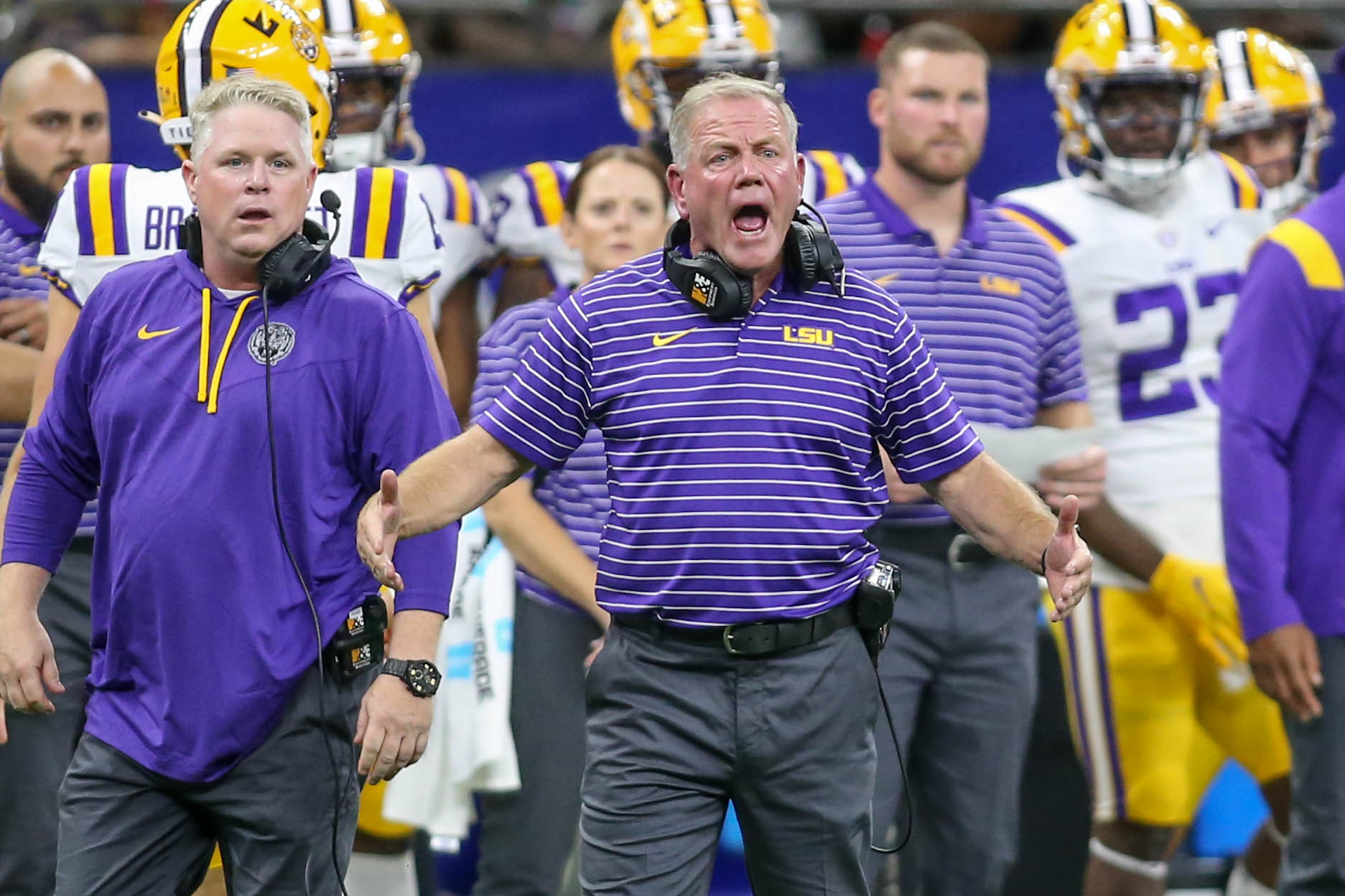
Brian Kelly’s fiery message on LSU’s struggle with NIL competition reverberated through his signing day press conference on Wednesday. Despite securing a top 10 recruiting class, the Tigers lost out on a few top prospects to bigger paychecks. “Today feels more like tax day than signing day,” Kelly bemoaned, highlighting the shift towards financial incentives or pay-for-play in modern recruitment.
Kelly outlined two strategies for success in this new landscape: constant fundraising or last-minute monetary splurging for top talent. He stressed the impact of schools’ varying needs on player valuations, using tackle Tyler Miller as an example.
Kelly emphasized the need for increased collective and donor support to stay competitive. But with LSU aiming to add 12 transfers to this current roster, significant investment is required to match offers from the lucrative transfer portal.
The coach also hinted at potential solutions, noting Tennessee’s “talent fee” on season tickets. However, he acknowledged the challenges of competing with wealthy programs and being prime targets for smaller conferences.
Kelly addressed the uncertainty around future NCAA monitoring of NIL deals and revenue sharing, making it clear that LSU needs more financial backing to remain a top contender in this new era of college football. “Recruiting is not just about finding the right fit academically and athletically anymore. It’s about chasing the biggest paycheck,” Kelly sternly stated during the 35-minute press conference.
While there were several positive points made about the 2025 recruiting class, Kelly’s message was a stark reminder of where LSU stands in the ever-evolving landscape of college athletics. Has this recent experience changed Kelly’s approach to recruiting freshmen in the future? Only time will tell.
It’s a cutthroat game in the world of college football recruiting, where no offer is safe and loyalties can change on a dime. As Kelly knows all too well, it takes more than just relationships to land top-tier recruits these days. “You need the collective, the NIL to supplement your recruiting efforts,” Kelly said frankly.
The competition for highly regarded prospects can come down to who has the deepest pockets, as seen with cornerback Kade Phillips, who flipped from being “locked in” with LSU to Texas after a better offer came along. “It wasn’t because we didn’t offer money or we didn’t recruit them,” Kelly stated.
In order for LSU to stay at the top of the recruiting food chain, they’ll need to be aggressive in pursuing transfers as well. According to Kelly, 12 new veteran transfer portal players are needed to fill out key positions on the roster. And as we’ve seen with this new era of college football, that will come at a cost. The Tigers must be willing to shell out big bucks in the NIL market to secure their desired targets and maintain their competitive edge.
LSU is no stranger to fierce competition, especially when it comes to recruiting top talent. But as schools like Oregon, Texas, and Ohio State continue to dominate with their massive donor bases, the Tigers are feeling the pressure to keep up.
Kelly more than acknowledged the changing landscape of college football: “The bar has been raised. It’s not just about having a strong brand anymore. You need financial support from donors if you want to compete in the transfer portal.”
As LSU works to increase its own NIL offerings and generate more revenue for its athletes, other SEC schools are already implementing innovative strategies. Take Tennessee, for example, who plans to attach a “talent fee” to season tickets in order to give back directly to their student athletes.
But even with these efforts, keeping up with the big spenders in college sports is no easy task. As Kelly points out, top recruits are now being pursued by multiple conferences and schools, making it increasingly difficult for programs like LSU to secure commitments.
And while revenue sharing may help level the playing field, it won’t stop outside endorsement deals from occurring. This raises questions about how much control the NCAA will have over monitoring these deals and ensuring they align with the organization’s guidelines.
At the end of the day, one thing is clear: LSU needs more money if they want to stay competitive in today’s college football landscape. And it will take a collective effort from TAF, the NIL program, the marketing team, and everyone in the football program to make that happen. Kelly’s message serves as a reminder of this reality.




Be the first to comment